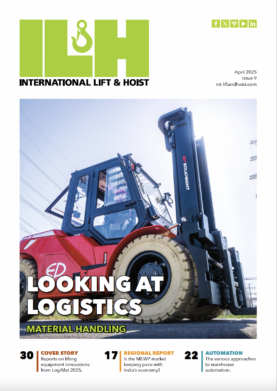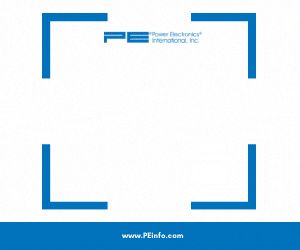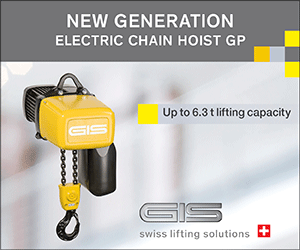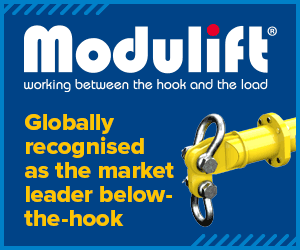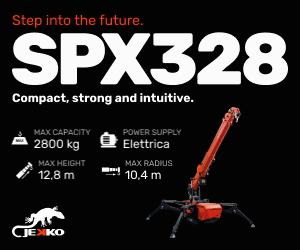)
Jungheinrich performs well in challenging market
At the end of the 2019 financial year, Jungheinrich had generated revenue of more than €4 billion. As a result, the company achieved its strategic growth target for 2020 a year earlier than planned. Incoming orders amounted to €3.92 billion, EBIT came to €263 million and EBIT return on sales amounted to 6.4%. Demand for electric trucks remained high – at over 97% of all trucks sold last year, Jungheinrich recorded the highest ratio of electric truck sales in the sector. Demand on the market for material handling equipment fitted with lithium-ion technology was especially strong.
In the 2019 financial year the company sold more than 20,000 lithium-ion batteries through new truck business and retrofitting. Jungheinrich founded JT Energy Systems GmbH with its partner Triathlon Holding GmbH and launched the construction of Europe’s largest development, manufacturing and reconditioning centre for lithium-ion batteries in the industry in Freiberg, Germany.
Jungheinrich believes that the coronavirus pandemic will have major consequences for the global economy in the 2020 financial year. It is not yet clear what the full extent of these consequences will be but protecting employees and safeguarding our ability to deliver are top priorities.
Jungheinrich has established a crisis team for this purpose, headed by the board of management, that makes daily decisions based on the current appraisal of the situation. A number of preventive measures have also been put into place to protect the workforce. Production at all plants is ongoing, and after-sales service technicians are deployed throughout the world. So far, the company has been able to prevent the situation having a negative impact on Jungheinrich’s supply chain and production processes, and our ability to deliver is currently stable.Dr Lars Brzoska, chairman of the board of management of Jungheinrich AG said, “In light of the economic headwinds over the course of the 2019 financial year, I am pleased that we were able to achieve our revenue target of €4 billion for 2020 a year earlier than planned with the Jungheinrich team. Despite the challenging conditions and the one-off negative impact on earnings, we were able to achieve respectable earnings of €263 million. Incoming orders and production declined as a result of the increasingly challenging economic conditions.
“We are all facing a great challenge, both professionally and in our private lives. I would like to extend my personal gratitude to all employees, who dedicate themselves fully to their work and take responsibility every day, particularly in the current situation. We are all taking the situation seriously and the necessary measures were put in place early on. I am certain that Jungheinrich will take this unusual situation in its stride. We will continue to rely on our integrated business model and will consistently invest in important future technologies.
“We published our forecast for the 2020 financial year in December. According to this forecast, we expect incoming orders to range between €3.50 billion and €3.80 billion and revenue between €3.60 billion and €3.80 billion. EBIT should come in between €150 million and €200 million, with a corresponding EBIT return on sales figure of between 4.0 and 5.5%. Possible influences from effects that could be traced back to the spreading of the new coronavirus have not been taken into account in the aforementioned forecast values.”
In 2019, the global market for material handling equipment reported its first decline since 2012 of -2%, or 31,000 forklift trucks, compared to the previous year. This was due to a downturn in orders both in the European market and the North American market that was not fully compensated by growth in China. In Europe, demand in all three product segments (warehousing equipment, battery-powered counterbalanced trucks and IC engine-powered counterbalanced trucks) remained below the previous year’s figures. The largest share of the downturn was reported in the warehousing equipment product segment. Half of the 8% decline in market volume in North America was also due to lower demand for IC engine-powered counterbalanced trucks.
At 122 thousand units, incoming orders in the new truck business, based on units, which includes orders for both new forklifts and trucks for short-term rental, remained 7% below the previous year’s incoming orders (131 thousand units). This was due to the sharp decline in demand in Europe and the reduction in orders for our own short-term rental fleet. By value, incoming orders for the business fields new truck business, short-term rental and used equipment, and aftersales services came to €3,992 million, which is on a par with the previous year’s figure (€3,971 million). Orders on hand in the new truck business amounted to €787 million as of 31 December 2019 (previous year: €907 million). These orders account for almost four months of production.



